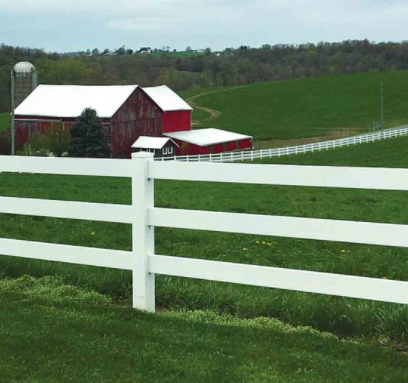Make a plan ahead of time.
 After that, you'll need to calculate and mark the area where you'll be erecting your fence. One of the most critical questions you'll have to answer is whether the area where you intend to build your sturdy farm fence is subject to any easements.
After that, you'll need to calculate and mark the area where you'll be erecting your fence. One of the most critical questions you'll have to answer is whether the area where you intend to build your sturdy farm fence is subject to any easements.Obtain All Necessary Permits
First and foremost, consult with the authorities in your area to see whether you would need a construction permit. You won't nine times out of ten, so it's worth double-checking to prevent any expensive penalties or levies.
Take care of the slopes and elevation.
Building a strong farm fence can seem simple at first, but once you start dealing with slopes or elevation, the math becomes more difficult. Make an effort to plan ahead of time for this.
Choose a Material
You'll have plenty of choices when it comes to construction materials for your sturdy farm fence. Although the most popular building materials are wood, page wire, and electricity, some people still use unusual materials like composite and vinyl (though not often, since these are more expensive).
Don't Forget About Braces and Corner Posts
Corner braces are one of the most significant aspects of a livestock fence. This will act as anchor points for your fence, taking the brunt of the force generated by both fence lines. Plan out where you want those corner braces to go before you plan out any other aspect of your fence.
Install Fence Posts that are Deep
Fence posts may be made of various materials, such as cedar or steel. Both materials have advantages and disadvantages, but regardless of what you use, make sure you drive those posts as far as they can go. The thicker your farm fence is, the deeper the posts are.
Invest in high-quality hardware
When erecting the fence, don't use the cheapest screws, staples, or nails you can find. Remember that the more sturdy your farm fence is, the less likely animals can escape (or in). Hardware made of stainless steel or galvanized steel can withstand corrosion and rust.
For Stabilization, Use Concrete
It's a smart idea to use concrete to hold your posts in place if the structural integrity of your posts is a problem (or even if you just want to add some extra insurance). You may use a fixed shape, such as a Sonotube, to save time by pouring in mixed concrete.
Invest in a good gate and make sure it's properly installed.
Your gate would be better if your fence posts are high. Make sure your posts are braced when you're putting them in place, as this will help to support your gate.
In addition, instead of two sets of hinges, your gate should have three. This will provide extra help for your gate once again.
Measure twice and cut once is a good rule of thumb.
When taking measurements, try to be as precise and accurate as possible. When building a solid farm fence – or really any structure on your farm – a good saying to live by is to measure twice and cut once. You'll be sure you're not making any errors or miscalculations this way.

